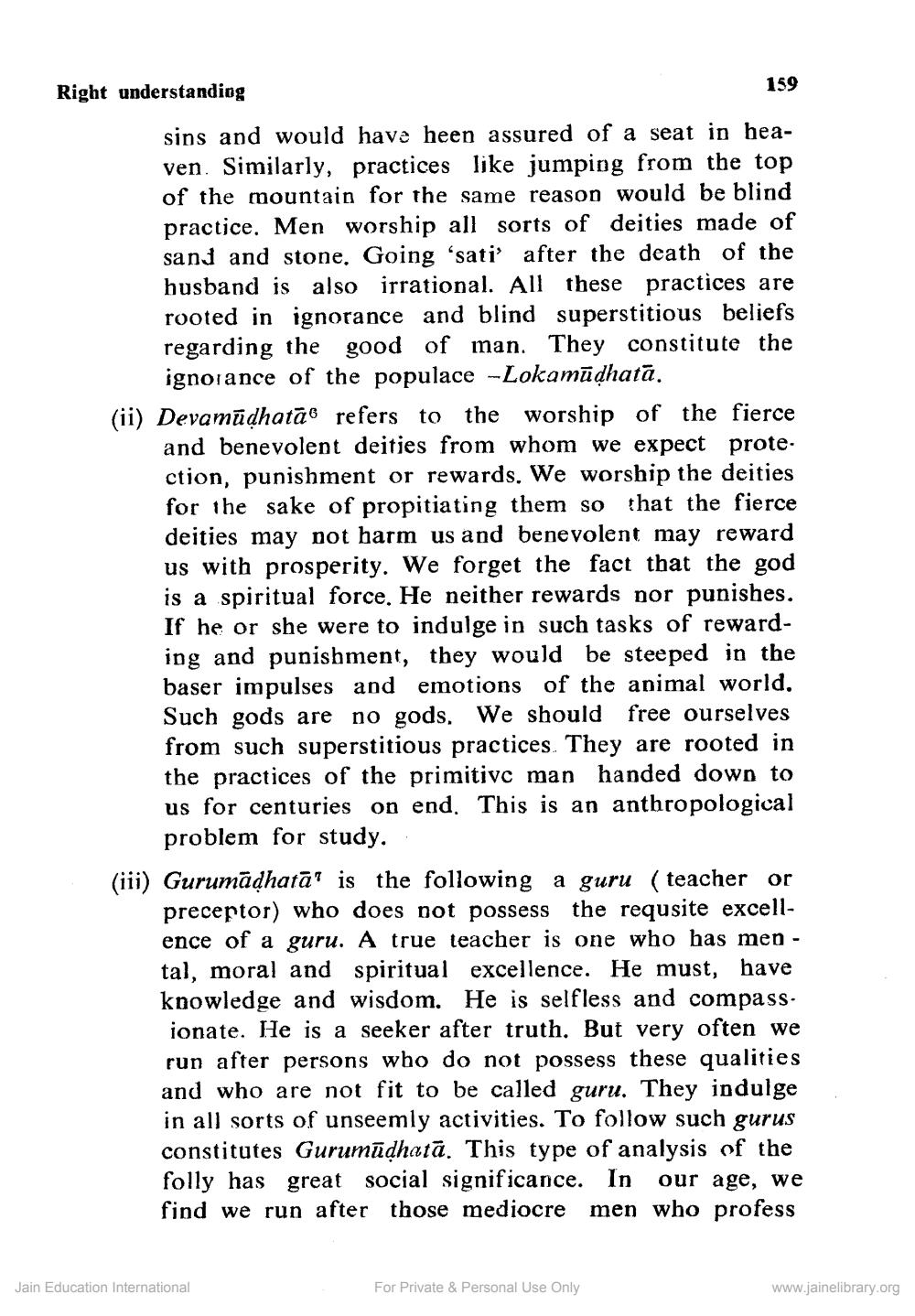________________
Right understanding
sins and would have heen assured of a seat in heaven. Similarly, practices like jumping from the top of the mountain for the same reason would be blind practice. Men worship all sorts of deities made of sand and stone. Going 'sati' after the death of the husband is also irrational. All these practices are rooted in ignorance and blind superstitious beliefs regarding the good of man. They constitute the ignorance of the populace -Lokamūḍhatā.
159
(ii) Devamuḍhata refers to the worship of the fierce and benevolent deities from whom we expect protection, punishment or rewards. We worship the deities for the sake of propitiating them so that the fierce deities may not harm us and benevolent may reward us with prosperity. We forget the fact that the god is a spiritual force. He neither rewards nor punishes. If he or she were to indulge in such tasks of rewarding and punishment, they would be steeped in the baser impulses and emotions of the animal world. Such gods are no gods. We should free ourselves from such superstitious practices. They are rooted in the practices of the primitive man handed down to us for centuries on end. This is an anthropological problem for study.
(iii) Gurumaḍhata" is the following a guru (teacher or preceptor) who does not possess the requsite excellence of a guru. A true teacher is one who has men - tal, moral and spiritual excellence. He must, have knowledge and wisdom. He is selfless and compassionate. He is a seeker after truth. But very often we run after persons who do not possess these qualities and who are not fit to be called guru. They indulge in all sorts of unseemly activities. To follow such gurus constitutes Gurumāḍhatā. This type of analysis of the folly has great social significance. In our age, we find we run after those mediocre men who profess
Jain Education International
For Private & Personal Use Only
www.jainelibrary.org




